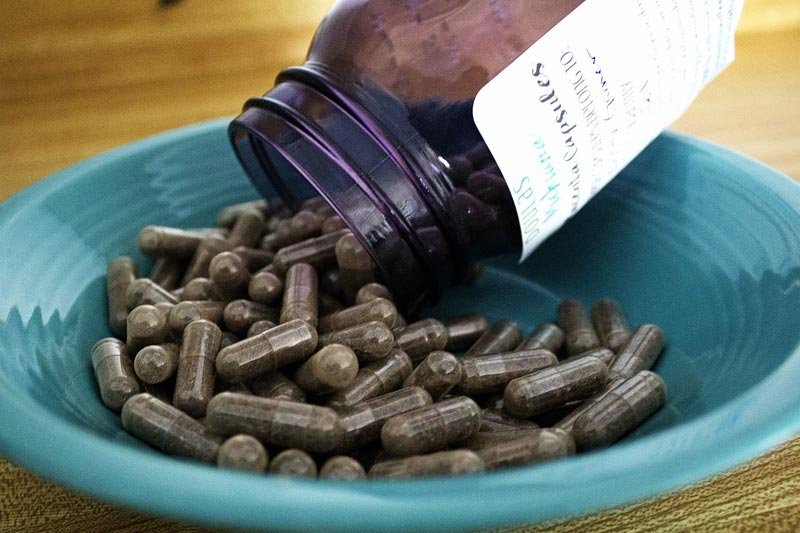Placenta Encapsulation: Is It Right for You? After giving birth to your healthy and happy baby, you might have noticed that there is another organ that immediately follows the birth: the placenta. The placenta is round and reddish, and it is the organ that enveloped the baby while in the womb.
The main purpose of the placenta is to facilitate the exchange of nutrients, waste, and blood between the baby and the mother, and to provide a safe space for the baby to grow. After giving birth, the placenta is expelled from the uterus of the mother.
In Western countries, the common procedure is to dispose of the placenta safely after birth, but in Chinese medicine, there is a procedure that has been practiced for centuries and is now gaining popularity in the United States: placenta encapsulation service.
What is Placenta Encapsulation?
In the past, placenta encapsulation was seen as a fringe tradition – something that only very traditional or old Eastern couples, especially Chinese couples, would do. However, there is a rising number of women who are consuming, or at least considering consuming, their placentas through placenta encapsulation.
Placenta encapsulation is the process of preparing, dehydrating, and crushing the placenta, and then processing the resulting powder into capsules or pills for easy consumption. Placental pills are recommended for the mother following the birth of her baby due to the alleged health benefits.
How are the Capsules Prepared?
One of the issues that surrounds the idea of placenta encapsulation is that there is no licensed or regulated process governing the creation of placenta pills or capsules. Thus, it is essential that you look for trained experts in creating placenta capsules so that you can be sure that you are receiving a safe and legitimate product. Hearth and Home Midwifery employs a highly-trained staff in producing placental capsules.
There are generally two methods that are used in placental encapsulation. The first method is the raw method, where the placenta is immediately retrieved after childbirth and processed. The placenta is sliced, dehydrated, and crushed into powder before placed into capsules.
The second method is the traditional Chinese method, which involves steaming the placenta first before dehydrating them and crushing them into the powdered form for encapsulation. The risk of bacterial growth is reduced with the second method due to the high temperatures during the steaming process.
Whether the placental encapsulation uses the former or latter method, the placental capsules are processed within two days of the birth and delivered immediately for consumption to ensure freshness and safety.
What are the Benefits?
When it comes to the benefits of consuming the placenta, most of the available information is based on anecdotal evidence rather than scientific research. Based on the anecdotal evidence, the main benefits of consuming placenta pills include:
Managing Postpartum depression
Many women suffer from postpartum depression after giving birth, and find it difficult to meet the needs of their newborn baby due to their condition. Placental capsules are said to help women struggling with postpartum depression.
Replenishing Iron Levels
After giving birth, there is a significant depletion of the iron levels in the mother’s blood which can result in anemia. The placenta is rich in iron, and it is thought that ingesting placenta capsules can help the mother quickly increase the iron levels in her body.
Increasing Oxytocin Levels
One of the reasons why many women struggle with postpartum depression is the decrease of oxytocin levels produced by their brain. Consuming placental pills is thought to increase oxytocin production, which not only helps for mood regulation, but it also helps the uterus heal and return to its original size before childbirth.
Are There Risks?
There are generally no recognized risks if you ingest placenta capsules, providing that you are taking a safe and trustworthy product. While some mothers have reported that they experienced mild negative symptoms such as dizziness and nausea after taking placenta capsules, there is no direct proof that it was caused by the capsules themselves.
If you do plan to take placenta capsules, you need to make sure that they are stored properly in a cool and dry place, and that it is not past its expiry date. Taking placenta capsules that are not stored properly or past the expiry date could have negative effects because there might be microbial growth.
Should I Choose to Get Placenta Encapsulation?
The bottom line is that placenta encapsulation is a personal decision. All the evidence for both the benefits and risks of placental capsules are based on anecdotal research, aside from the issue of the safety and legitimacy of the product in terms of microbial levels and processing. You might want to talk with your healthcare provider to ask if taking placenta capsules is right for you.
Once you have decided to take placenta capsules, make sure that you are taking capsules that are made by a reputable company.
Placenta Encapsulation: Is It Right for You?
How To Encapsulate Your Placenta
PLACENTA ENCAPSULATION | IS IT WORTH IT?
Placenta Encapsulation from Start to Finish
Placenta Encapsulation
Placenta Encapsulation insider: Baby’s Home




